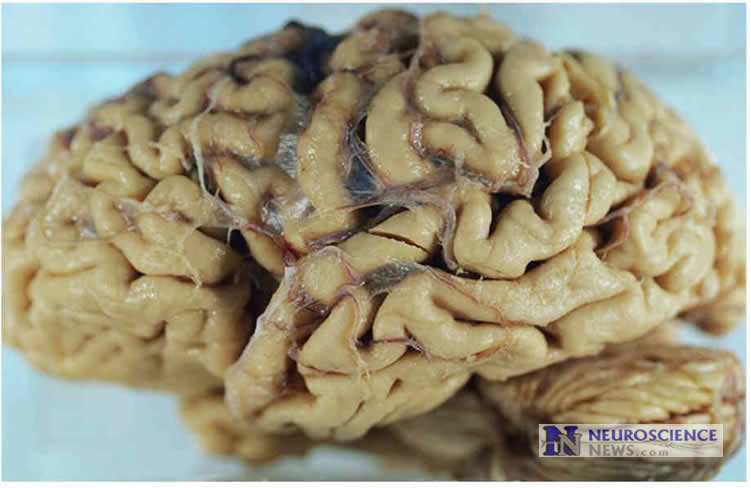New research suggests that older women who complain of memory problems may be at higher risk for experiencing diagnosed memory and thinking impairment decades later. The study is published in the October 28, 2015, online issue of Neurology.
“These memory complaints may be a very early symptom of a gradual disease process such as Alzheimer’s disease,” said study author Allison Kaup, PhD, with the San Francisco VA Medical Center and University of California San Francisco. “Other studies have shown this association, however, our study followed women for longer than most other studies, following these women over the course of nearly 20 years.”
Kaup said the memory complaints were enough to be noticeable to the women, but not significant enough to show up on a standard test.
For the study, 1,107 dementia-free women with an average age of 70 were asked several times over 18 years the same question: “Do you feel you have more problems with memory than most?” At the end of the study, women completed tests of thinking abilities to diagnose whether they had memory or thinking impairment. Other important factors such as years of education, depression, high blood pressure, diabetes, stroke and heart disease were considered.
A total of 89 women, or 8 percent, complained of memory problems at the start of the study. They were 70 percent more likely to develop a diagnosis of memory or thinking impairment during the study than women who did not have any memory complaints, with 53 percent of those with complaints developing a diagnosis compared to 38 percent of those with no memory complaints.
Women who had memory complaints 10 years before the end of the study were 90 percent more likely to develop a diagnosis than those with no memory complaints at 10 years prior. Women who had memory complaints four years before the end of the study were three times more likely to develop a diagnosis than women with no memory complaints four years prior.

“Our findings, though modest, provide further evidence that memory complaints in aging deserve close attention as a possible early warning sign of future thinking and memory problems, even several years in advance,” said Kaup.
She noted that since the study involved only European-American women, the findings cannot be generalized to men and other racial or ethnic groups.
Funding: The study was supported by National Institutes of Health, the National Institute on Aging, the U.S. Department of Veterans Affairs, the San Francisco Veterans Affairs Medical Center and the Department of Veterans Affairs Sierra-Pacific Mental Illness Research, Education, and Clinical Center.
Source: Rachel Seroka – American Academy of Neurology
Image Credit: The image is in the public domain.
Original Research: Abstract for “Memory complaints and risk of cognitive impairment after nearly 2 decades among older women” by Allison R. Kaup, Jasmine Nettiksimmons, Erin S. LeBlanc, and Kristine Yaffe in Neurology. Published online October 28 2015 doi:10.1212/WNL.0000000000002153 1526-632X
Abstract
Memory complaints and risk of cognitive impairment after nearly 2 decades among older women
Objectives: To investigate the association between subjective memory complaints (SMCs) and long-term risk of cognitive impairment in aging because most previous studies have followed individuals for only a few years.
Methods: Participants were 1,107 cognitively normal, community-dwelling older women (aged 65 years and older at baseline) in a prospective study of aging. SMCs were assessed shortly after baseline and repeatedly over time with the yes/no question, “Do you feel you have more problems with memory than most?” Cognitive status 18 years later (normal or impaired with mild cognitive impairment or dementia) was determined by an expert panel. Using logistic regression, we investigated the association between SMCs over time and risk of cognitive impairment, adjusting for demographics, baseline cognition, and characteristics that differed between those with and without SMCs.
Results: At baseline, 8.0% of participants (n = 89) endorsed SMCs. Baseline SMCs were associated with increased risk of cognitive impairment 18 years later (adjusted odds ratio [OR] = 1.7, 95% confidence interval 1.1–2.8). Results were unchanged after excluding participants with depression. The association between SMCs and cognitive impairment was greatest at the last SMC assessment time point (18 years before diagnosis: adjusted OR = 1.7 [1.1–2.9]; 14 years before diagnosis: adjusted OR = 1.6 [0.9–2.7]; 10 years before diagnosis: adjusted OR = 1.9 [1.1–3.1]; 4 years before diagnosis: adjusted OR = 3.0 [1.8–5.0]).
Conclusions: SMCs are associated with cognitive impairment nearly 2 decades later among older women. SMCs may be a very early symptom of an insidious neurodegenerative disease process, such as Alzheimer disease.
“Memory complaints and risk of cognitive impairment after nearly 2 decades among older women” by Allison R. Kaup, Jasmine Nettiksimmons, Erin S. LeBlanc, and Kristine Yaffe in Neurology. Published online October 28 2015 doi:10.1212/WNL.0000000000002153 1526-632X






